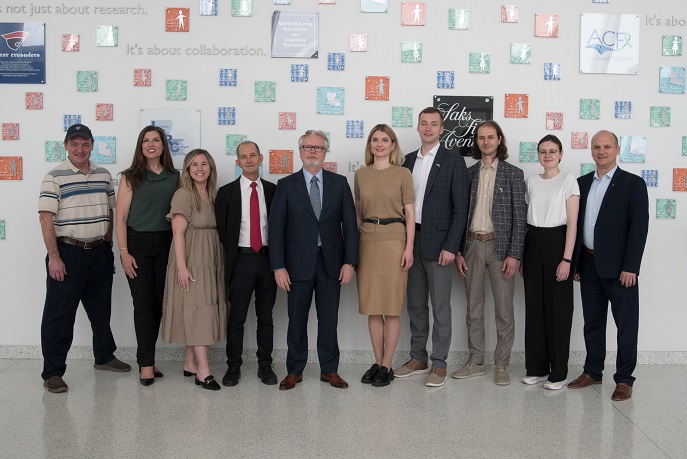
Student Researchers Rely on Powerful All of Us Workbench to Enhance Their Work

The All of Us Research Workbench, a powerful biomedical data resource of the National Institutes of Health (NIH) is a tremendous tool for researchers in all stages of their careers.
Case in point: Xavier University students Lauren Evans and Ivan Jubilee, III presented completed their own research using the Workbench after completing the National Institutes of Health’s mandatory approval process and support from KiTani Lemieux, PhD, M.S., associate professor in the College of Pharmacy at Xavier University of Louisiana and Xavier’s principal investigator for All of Us. Dr. Lemieux is also a member of the faculty of the Louisiana Cancer Research Center (LCRC).
Lauren said the Workbench streamlined her work that ultimately developed into a presentation at the LCRC entitled “Black Women with Breast Cancer Living in the Deep South and Their Experiences with Healthcare Providers and Access to Environments That Promote Wellbeing.” She concluded that black women diagnosed with breast cancer are adversely impacted by the social determinants of health such as proximity to public transportation, equity healthcare, recreational facilities and infrastructure in the Deep South states of Alabama, Georgia, Mississippi, and Louisiana.
“The Workbench definitely made my research easier,” Lauren insists. “Otherwise, I would have had to create a survey myself and then go through the IRB approval process and then actually go out and do the survey. And then if I wanted to look at the deep south, that would mean logistically figuring out how I was going to get the survey to the people in those different states.”
Lauren used questions from the All of Us Workbench social determinants of health survey, which drilled down to specifics like whether there were sidewalks, transit stops, free recreational facilities in target neighborhoods?
“For someone like me who is in school and is in New Orleans, I don't think I would've been able to have as wide of a reach,” Lauren insists. She presented her work at this year's American Association for Cancer Research conference in San Diego.
Ivan T. Jubilee II, a PharmD Candidate at Xavier’s College of Pharmacy relied on the All of Us Workbench to explore the powerful data and finally discover what he terms “a severe research gap” that led him to develop “Evaluation of the Association between Sickle Cell Disease and Breast Cancer using the All of Us Research Program Dataset,” presented recently at the LCRC.
After studying the data, he found that three of the nine patients in his cohort were under treatment for both Sickle Cell Disease and Triple Negative Breast Cancer and all were prescribed the biologic Dinutuximab, an off-label treatment for breast cancer as it is only FDA approved for pediatric neuroblastoma.
“When I did some more digging into the drug itself, I found that Dinutuximab has been shown in studies that are preclinical in nature to actually reduce tumor size as well as improved survival of rats with triple negative breast cancer,” Ivan says.
Without the All of Us Workbench, Ivan says his research would not have been possible. “Logistically it would have been too hard. Of all of the 700,000 patients in the database, my cohort size was only nine, which you have to remember is a subset of all the patients in the entire United States, I don't think that this study would've even happened without this database.”
Ivan encourages other students to register for the All of Us Workbench. “The dataset is very, very, very student friendly and it's a great learning tool because I literally got to create and conduct my own research experiment,” he says.
Students at Xavier University of Louisiana may contact Dr. Lemieux for information about registering and gaining access to the Workbench.
Daybriel Johnson, a senior at Southern University is eager to use the Workbench in a research project she has been working on for over a year, trying to identify which groups are more open and accepting of information about COVID-19. She intends to register for access to refine her analysis.
Student researchers interested in learning more about the Workbench and opportunities for researchers may click here.



